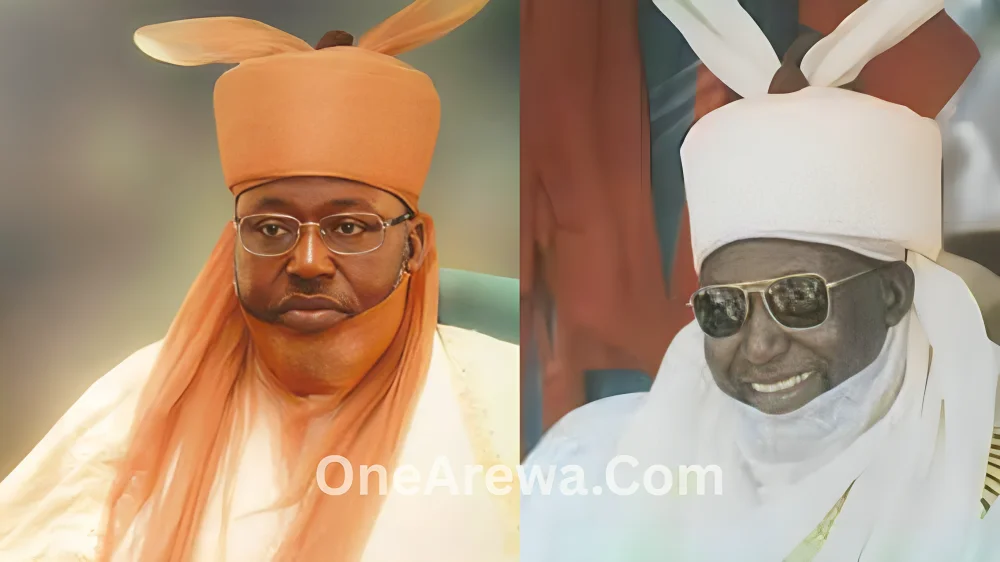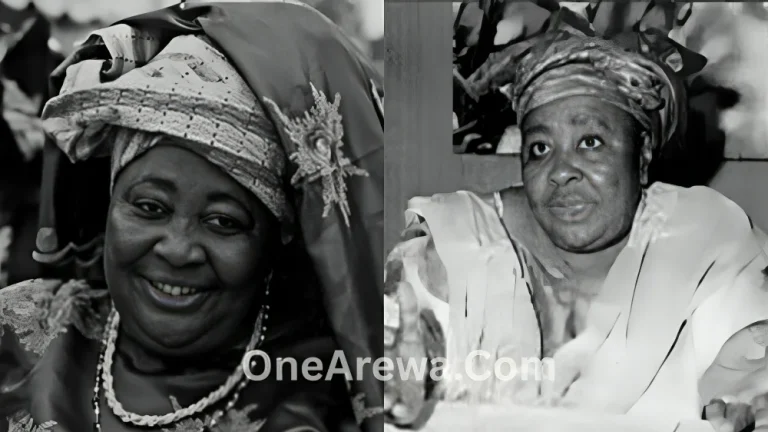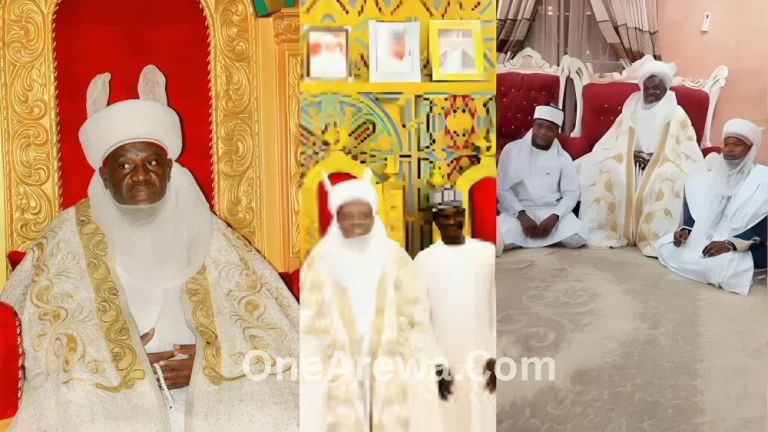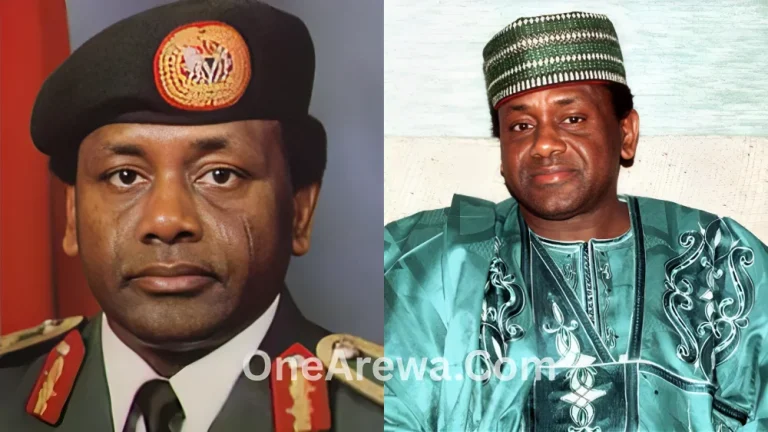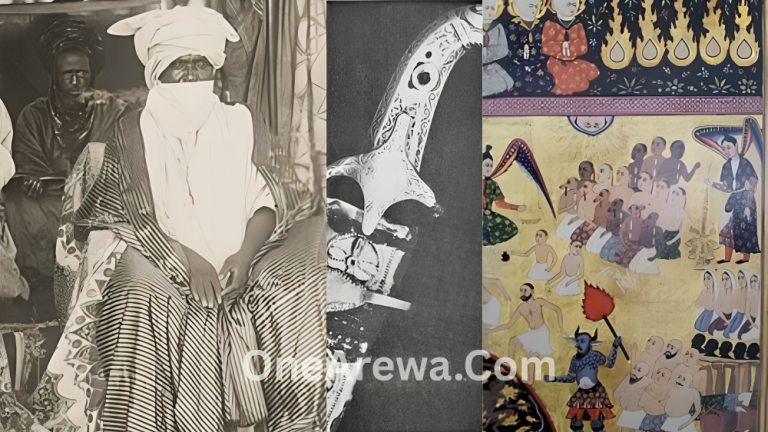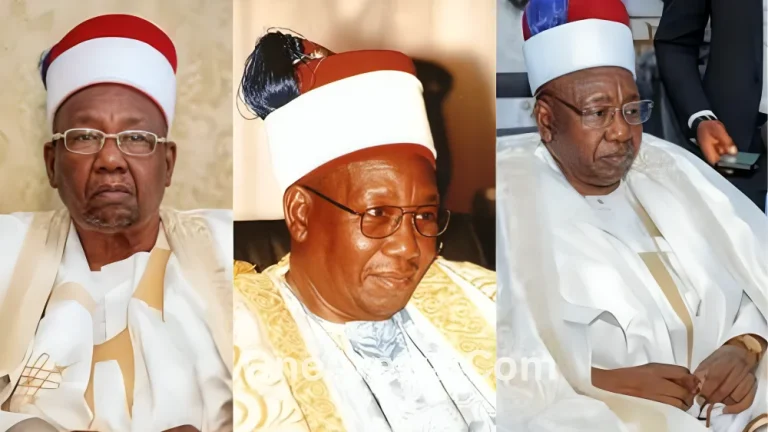Emir Abubakar of Hadejia: The Visionary Leader Behind Hadejia’s Cultural and Community Development
Emir Abubakar of Hadejia: The Visionary Leader Behind Hadejia’s Cultural and Community Development
Emir Abubakar of Hadejia is a visionary traditional ruler known for his significant contributions to the cultural preservation and community development of Hadejia, one of the historic Hausa Bakwai states in Jigawa State, Nigeria.
He is the 16th Emir of Hadejia, having ascended the throne on September 13, 2002.
Under his leadership, the emirate has maintained its rich Hausa and Islamic heritage while advancing in education, healthcare, agriculture, and local economic development.
Born into the royal family, Emir Abubakar was educated through both traditional Islamic scholarship and formal Western education, giving him a unique ability to blend cultural values with modern governance.
Before becoming Emir, he gained governance experience as a District Head and held important roles such as Secretary of the Jigawa State Pilgrims Welfare Board.
Emir Abubakar of Hadejia is also the Chairman of the Jigawa State Council of Chiefs and the Chancellor of the University of Uyo since 2017.
As Emir, he oversees a hierarchical traditional system of District, Village, and Ward Heads, ensuring smooth governance and peace.
Emir Abubakar of Hadejia actively promotes peace, unity, and social harmony and works closely with the government and NGOs to improve the welfare of his people.
Emir Abubakar of Hadejia champions cultural festivals, the Hausa language, and traditional practices, ensuring that Hadejia’s heritage remains vibrant for future generations.
Emir Abubakar of Hadejia also supports modern initiatives like improved schooling, healthcare infrastructure, and agricultural development.
Emir Abubakar of Hadejia leadership has made Hadejia a model of cultural pride and progressive community development in Jigawa State and Northern Nigeria.
Emir Abubakar of Hadejia is widely respected as a symbol of stability, peace, and modernization without compromising tradition.
Emir Abubakar of Hadejia holds the national honor of Commander of the Order of the Niger (CON) and continues to inspire other leaders in balancing tradition and modernity for sustainable development.

Wikipedia
| Category | Details |
|---|---|
| Full Name | Alhaji Dr. Adamu Abubakar Maje, CON |
| Date of Birth | 15th October |
| Title | 16th Emir of Hadejia |
| Reign | 13th September 2002 – Present |
| Education | Doctorate; former Secretary, Jigawa State Pilgrims Welfare Board (2000–2012) |
| Notable Appointments | – Chairman, Jigawa State Council of Chiefs- 5th Chancellor, University of Uyo (since May 4, 2017)- Amirul Hajj of Jigawa State (2024) |
| Role and Responsibilities | – Promotes peace and unity in Jigawa State- Oversees cultural and community development- Collaborates with the government for the welfare of the subjects |
| Family | Son of Alhaji Abubakar Maje Haruna |
| Honours | Commander of the Order of the Niger (CON) |
| Quick Facts | – Born: 15th October- Ascended throne: 13th September 2002- Chancellor of the University of Uyo since 2017- Amirul Hajj for Jigawa State in 2024 |
Early Life and Education of Emir Abubakar of Hadejia
Emir Abubakar of Hadejia was born into the royal family of the Hadejia Emirate, a lineage known for its deep-rooted history in leadership and Islamic scholarship.
From an early age, he was groomed for leadership through a combination of traditional Islamic education and formal Western education, which provided him with a strong moral foundation and the knowledge needed for modern governance.
Emir Abubakar of Hadejia began his early education by memorizing the Qur’an and studying Islamic jurisprudence, Arabic, and traditional leadership principles under the guidance of respected scholars in the emirate.
Later, he attended formal schools where he gained a solid academic background, focusing on public administration, history, and community development.
This dual education system helped shape his worldview and leadership style, enabling him to effectively blend cultural values with modern development strategies.
Emir Abubakar’s early life and education played a key role in preparing him to lead Hadejia with vision, compassion, and a deep sense of responsibility to both tradition and progress.
Check Out: Shehu Muhammad al-Amîn al-Kanemi (1776 – 8 June 1837)
Career of Emir Abubakar of Hadejia
Emir Abubakar of Hadejia began his career in public service long before ascending the throne.
He held various positions within the traditional council and local government structures, where he gained valuable experience in governance, conflict resolution, and community development.
His leadership journey included serving as a District Head within the Hadejia Emirate, where he was responsible for maintaining law and order, promoting education, and supporting agricultural development in rural communities.
His commitment to public welfare, transparency, and cultural preservation quickly earned him respect among both traditional leaders and the general public.
Following the passing of the former Emir, Abubakar was unanimously selected and officially installed as the Emir of Hadejia, a role in which he has continued to demonstrate visionary leadership.
As Emir, he works closely with government officials, NGOs, and local institutions to drive social progress, especially in areas like education, healthcare, youth empowerment, and security.
His career is marked by a strong commitment to preserving Hadejia’s cultural heritage while also pushing for modernization and inclusive development, making him one of the most influential traditional leaders in Jigawa State and Northern Nigeria.
Hadejia’s Cultural Heritage
Hadejia, formerly known as Biram, is one of the historic Hausa Bakwai, the seven original Hausa states, making it a cornerstone of Hausa culture and tradition.
The city holds a prestigious place in Northern Nigerian history as a center of learning, commerce, and governance.
The cultural heritage of Hadejia is deeply rooted in Islamic values, Hausa customs, and the traditional emirate system.
These traditions have been preserved and passed down through generations, thanks to the role played by the Emir and traditional institutions.
The city is known for its architectural landmarks, including ancient palaces, mosques, and city walls that reflect its historical significance.
Festivals, oral history, traditional music, and local crafts are all vibrant parts of Hadejia’s cultural identity.
Events such as Durbar festivals, traditional naming ceremonies, and royal processions serve not only as a form of celebration but also as a means of preserving cultural practices.
Under the leadership of Emir Abubakar, Hadejia has continued to honor its cultural roots while adapting to modern societal needs.
He has supported efforts to revive cultural institutions, promote Hausa language and history, and engage the youth in cultural awareness programs, ensuring that the rich heritage of Hadejia remains a living legacy.
Emir’s Role:
The Emir of Hadejia, currently Emir Abubakar, plays a pivotal role as both a traditional ruler and a community leader.
His responsibilities go beyond ceremonial duties; he is a custodian of the emirate’s history, culture, and values, serving as a bridge between tradition and modern governance.
As the head of the Hadejia Emirate Council, he oversees a hierarchical structure that includes District Heads, Village Heads, and Ward Heads, ensuring grassroots governance and conflict resolution.
His leadership is essential in maintaining peace, order, and cultural identity within the emirate.
The Emir also serves as an advisor and partner to the government, especially on issues affecting his people.
He advocates for developmental projects in areas like education, healthcare, agriculture, and infrastructure, reflecting his commitment to the welfare of his people.
Moreover, Emir Abubakar is instrumental in preserving Islamic and Hausa traditions, supporting religious education, community events, and moral guidance.
Through his leadership, he unites the people of Hadejia, champions social justice, and ensures the emirate remains a stronghold of cultural pride and progressive leadership.
Community Development:
Emir Abubakar of Hadejia has been at the forefront of community development, actively championing initiatives that uplift the socio-economic standards of his people.
Under his leadership, Hadejia has seen improvements in education, healthcare, agriculture, and youth empowerment programs.
He supports the establishment and renovation of schools and learning centers, ensuring that both traditional Islamic education and modern curricula thrive side by side.
The Emir also advocates for better healthcare services, promoting the construction and upgrading of clinics and hospitals to serve the growing needs of the population.
In the agricultural sector, which is the backbone of Hadejia’s economy, the Emir encourages farmers through the promotion of modern farming techniques, access to fertilizers, and irrigation projects, helping boost food security and income generation.
Furthermore, Emir Abubakar emphasizes peacebuilding and social harmony, encouraging dialogue, tolerance, and unity among diverse groups in the emirate.
His inclusive approach fosters community participation, inspires local leadership, and reinforces a strong sense of identity and cooperation among the people of Hadejia.
Jigawa State:
Jigawa State, located in the northwestern region of Nigeria, was created on August 27, 1991, from the northeastern part of Kano State. It is divided into five traditional emirates: Hadejia, Dutse, Gumel, Kazaure, and Ringim.
Each emirate is governed by a traditional emir, who plays a vital role in maintaining cultural heritage, resolving local disputes, and supporting grassroots development.
Hadejia Emirate, led by Emir Abubakar, is one of the most historically significant, being part of the ancient Hausa Bakwai (Seven True Hausa States).
The emirates work in synergy with the Jigawa State Government to implement development programs, particularly in education, health, agriculture, and infrastructure.
Jigawa is known for its strong Islamic traditions, rich Hausa-Fulani culture, and a growing emphasis on sustainable development, thanks in part to collaborative efforts between the state government and traditional institutions.
Through this system, traditional rulers like the Emir of Hadejia continue to serve as bridges between modern governance and the grassroots population.
Family of Emir Abubakar of Hadejia
Emir Abubakar of Hadejia comes from a respected royal lineage that has governed the Hadejia Emirate for generations.
His family plays an important role in the cultural and traditional leadership of the region.
Royal Heritage: The Emir belongs to the ruling dynasty of Hadejia, which traces its roots back to the historic Hausa Bakwai (Seven True Hausa States). This royal family is known for its commitment to preserving the emirate’s traditions and guiding the community.
Immediate Family: Emir Abubakar’s family supports him in his leadership duties, often involving key members in cultural, religious, and administrative roles within the emirate.
Succession: The family maintains a clear line of succession to ensure continuity in leadership, with sons or close relatives often prepared to take on roles in governance or traditional affairs.
Community Connection: The Emir’s family is deeply integrated with the people of Hadejia, often participating in social and religious events, further strengthening community ties.
Through his family, Emir Abubakar upholds the values, history, and unity of the Hadejia Emirate, ensuring its development and cultural preservation continue for future generations.
Trivia about Emir Abubakar of Hadejia
1. Historic Title: Emir Abubakar holds a title that links him directly to one of the ancient Hausa Bakwai states, making him a custodian of centuries-old traditions.
2. Cultural Ambassador: He is often seen as a bridge between modern governance and traditional values, promoting peace and unity in Hadejia.
3. Community Advocate: Known for his hands-on approach, the Emir regularly participates in grassroots development projects, especially those focusing on education and healthcare.
4. Symbol of Stability: Under his reign, Hadejia has experienced relative peace and social cohesion, earning him respect across Jigawa State and beyond.
5. Modern Leadership: Despite being a traditional ruler, Emir Abubakar embraces modernization efforts that help improve the quality of life for his people without compromising cultural heritage.
6. Influential Network: He maintains strong relationships with other emirs, political leaders, and development organizations, which aid in attracting resources to the emirate.
7. Cultural Festivals: He actively promotes and presides over traditional festivals that celebrate the rich heritage of Hadejia, drawing visitors from across Nigeria.
Legacy of Emir Abubakar of Hadejia
Emir Abubakar of Hadejia is celebrated for his enduring legacy as a visionary leader who has significantly contributed to the preservation of Hadejia’s rich cultural heritage while championing community development.
His reign has strengthened the identity of Hadejia as one of the historic Hausa Bakwai states, ensuring that traditional values and customs continue to thrive in a rapidly changing world.
Beyond cultural preservation, Emir Abubakar’s commitment to improving education, healthcare, and economic opportunities has fostered social stability and growth within the emirate.
His leadership has positioned Hadejia as a model of peaceful coexistence and progress in Jigawa State.
His legacy also includes nurturing strong ties between traditional institutions and modern governance, thereby bridging the gap between the past and the future.
Emir Abubakar’s influence extends beyond Hadejia, inspiring other leaders in Northern Nigeria to embrace a balanced approach to cultural pride and development.
In summary, Emir Abubakar’s legacy is marked by his dedication to cultural preservation, community empowerment, and inclusive leadership, leaving a lasting impact on Hadejia’s present and future generations.

FAQs
1. Who is Emir Abubakar of Hadejia?
Emir Alhaji Dr. Adamu Abubakar Maje is the 16th Emir of Hadejia, a respected traditional ruler known for his visionary leadership in cultural preservation and community development in Hadejia, Jigawa State.
2. When did Emir Abubakar of Hadejia become the Emir of Hadejia?
He ascended the throne on September 13, 2002.
3. What is the significance of Hadejia in Nigerian history?
Hadejia, formerly known as Biram, is one of the seven true Hausa states (Hausa Bakwai), recognized for its rich cultural heritage and historical importance.
4. How has Emir Abubakar of Hadejia contributed to Hadejia’s cultural development?
He has played a pivotal role in preserving Hausa traditions, promoting cultural festivals, and supporting initiatives that uphold Hadejia’s historical identity.
5. What role does Emir Abubakar of Hadejia play in community development?
Beyond cultural leadership, the Emir is actively involved in advancing education, healthcare, and economic growth, helping improve the welfare of Hadejia’s residents.
6. What are some of Emir Abubakar of Hadejia’s official roles outside Hadejia?
He serves as Chairman of the Jigawa State Council of Chiefs, was the Secretary of the Jigawa State Pilgrims Welfare Board, and has been the Chancellor of the University of Uyo since 2017.
7. How does Emir Abubakar of Hadejia influence peace and unity in Jigawa State?
As a traditional ruler, he mediates conflicts, promotes peaceful coexistence among diverse communities, and collaborates with government authorities to maintain stability.
8. What honours has Emir Abubakar of Hadejia received?
He has been awarded the Commander of the Order of the Niger (CON), one of Nigeria’s prestigious national honours.
9. Who is Emir Abubakar of Hadejia family?
He is the son of Alhaji Abubakar Maje Haruna, continuing a legacy of leadership in Hadejia.
10. What is Emir Abubakar of Hadejia’s vision for the future of Hadejia?
His vision focuses on sustainable development by balancing cultural preservation with modern advancement to ensure a prosperous and united community.
Check Out: Shehu Usman Dan Fodio: The Islamic Scholar Who Founded the Sokoto Caliphate (1754–1817)
In conclusion
Emir Alhaji Dr. Adamu Abubakar Maje of Hadejia stands out as a visionary and dedicated leader whose deep commitment to preserving Hadejia’s rich cultural heritage and promoting community development has significantly impacted the region.
Since ascending the throne in 2002, he has played a vital role in fostering peace, education, healthcare, and economic growth within Jigawa State.
As both a custodian of tradition and a forward-thinking ruler, Emir Abubakar continues to inspire progress while honoring the legacy of the historic Hausa state of Hadejia, ensuring a prosperous future for its people.
Check Out: General Abdulsalami Abubakar: The Military Leader Who Brought Back Democracy to Nigeria (1998–1999)
Check Out: General Murtala Ramat Muhammed: Nigeria’s Boldest Head of State (1975–1976)
